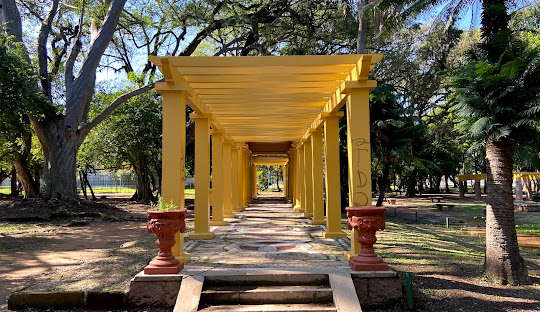MOVING BETWEEN TWO WAYS OF PLANTING: from urbanextensive to traditional and the challenges of staying in the countryside
DOI:
https://doi.org/10.18764/2236-4358v14n43.2024.45Keywords:
countryside, traditional planting methods, extensive urbanization, countryside weakenessesAbstract
We can't deny that the invasion of industrial capitalism into the countryside and its extensive urbanization has been erasing and challenging the traditional ways of
farming that still exist. With the advent of the so-called “green revolution”, small farmers are increasingly incorporating a way of farming based on efficiency and productivity. Abandoning traditional ways that take advantage of the system's ability to sustain itself. We propose here to problematize both forms without the intention of comparing them, as if one
were better than the other, but rather to understand how they reflect different ways of life, at a time when the countryside represents one of the ways of tackling the current climate
crisis, when family farming is responsible for a large part of the urban population's food, revealing the importance of the permanence of those who work in the countryside.
Downloads
References
BALSAN, Rosane. Impactos decorrentes da modernização da agricultura brasileira. CAMPO-TERRITÓRIO: revista de geografia agrária, v. 1, n. 2, p. 123-151, ago. 2006.
BISPO DOS SANTOS, Antônio. Colonização, Quilombos: Modos e Significados. 2a Edição. Brasília: Editado pela Associação de Ciências e Saberes para o Etnodesenvolvimento AYÓ, 2023.
________________ A Terra dá, a terra quer. São Paulo: Ubu Editora/PISEAGRAMA, 2023.
_________________. Somos da terra. PISEAGRAMA, Belo Horizonte, n. 12, pp. 44-51, ago. 2018.
CADENA, Marisol de la. Seres-terra: cosmopolíticas em mundos andinos. Tradução de Caroline Nogueira, Fernando Silva e Silva. 1 edição. RJ: Bazar do Tempo, 2024.
DELA BANDERA, Mauro. O que as plantas nos ensinam sobre política? PISEAGRAMA e n-1 edições, Belo Horizonte, edição especial, 2023, p. 2-11.
MARTINS, José de Souza. Os camponeses e a política no Brasil. Rio de Janeiro, Editora Vozes, 1981.
MONTE-MÓR, Roberto L. de M..Urbanização extensiva e lógicas de povoamento: Um olhar ambiental. In: SANTOS, Milton et. al. (orgs.) Território, globalização e fragmentação. São Paulo: Hucitec/Anpur, 1994, p. 169-181.
___________________. A relação urbano-rural no Brasil contemporâneo. II Seminário Internacional sobre Desenvolvimento Regional / Programa de Pós-Graduação em Desenvolvimento Regional, Santa Cruz do Sul, RS, 2006, p. 3.
OLIVEIRA, Ariovaldo Umbelino de. A agricultura camponesa no Brasil. São Paulo: Contexto, 1991.
RIGO, Neide; CHIZZOLINI, Bianca; SHIRATORI, Karen. Comida Pública. PISEAGRAMA e n-1 edições, Belo Horizonte, edição especial, 2023, p. 104-113.
____________. Comida comum. São Paulo: Ubu Editora, 2024.
SAAVEDRA, Carola. O mundo desdobrável: ensaios para depois do fim. Belo Horizonte: Relicário, 2021.
STEENBOCK, Walter. A arte de guardar o sol: padrões da Natureza na reconexão entre florestas, cultivos e gentes. R.J.: Bambual Editora, 2021.
VIVEIROS DE CASTRO, Eduardo. A Antropologia Perspectivista e o método da equivocação controlada. Trad. Marcelo Giacomazzi Camargo e Rodrigo Amaro. Aceno – Revista de Antropologia do Centro-Oeste, v. 5, n. 10, pp. 247-264, ago.-dez. 2018.
Downloads
Published
How to Cite
Issue
Section
License
Copyright (c) 2024 Revista Húmus

This work is licensed under a Creative Commons Attribution 4.0 International License.







